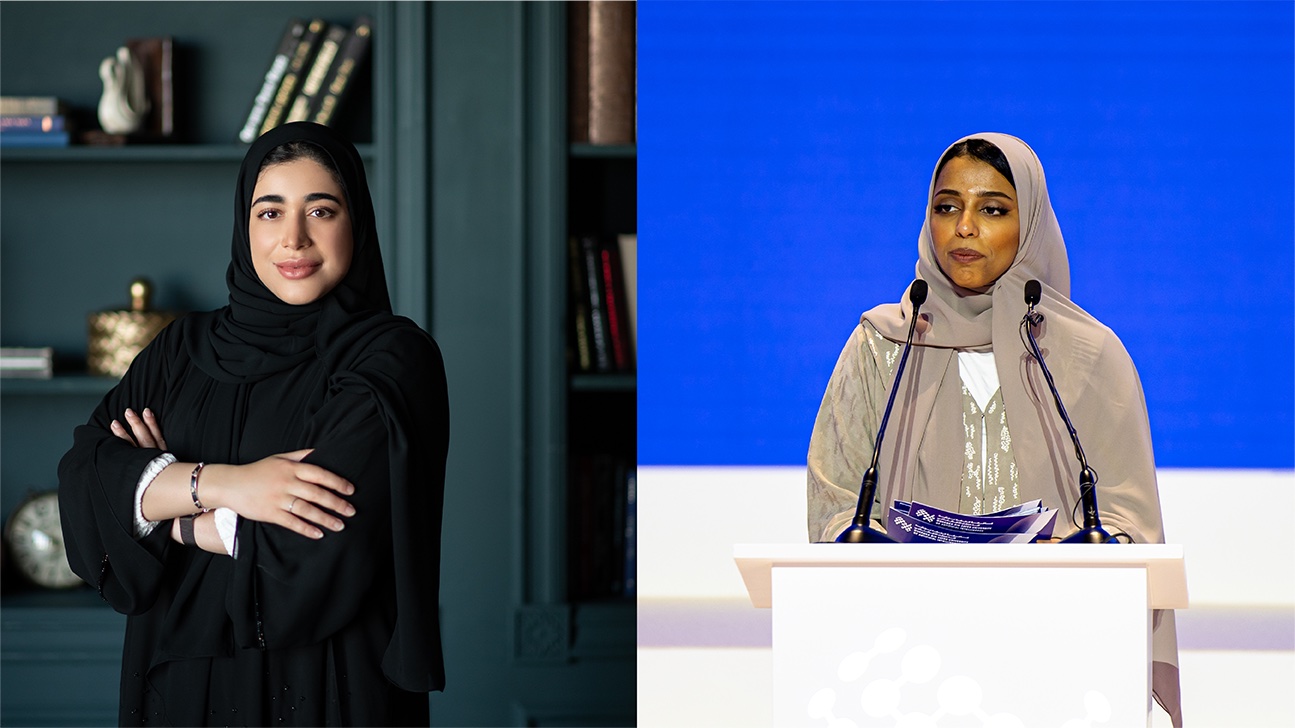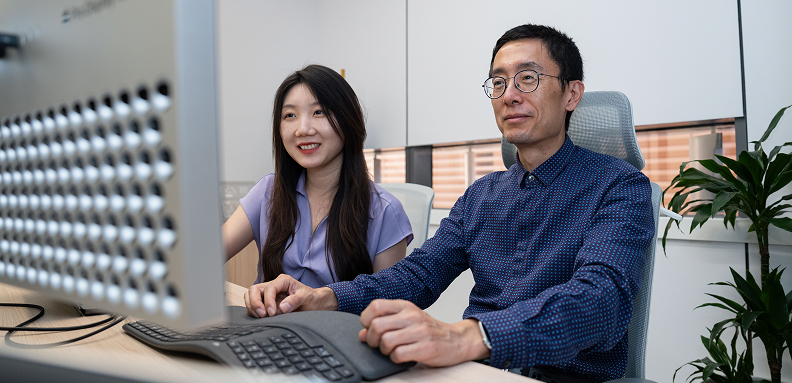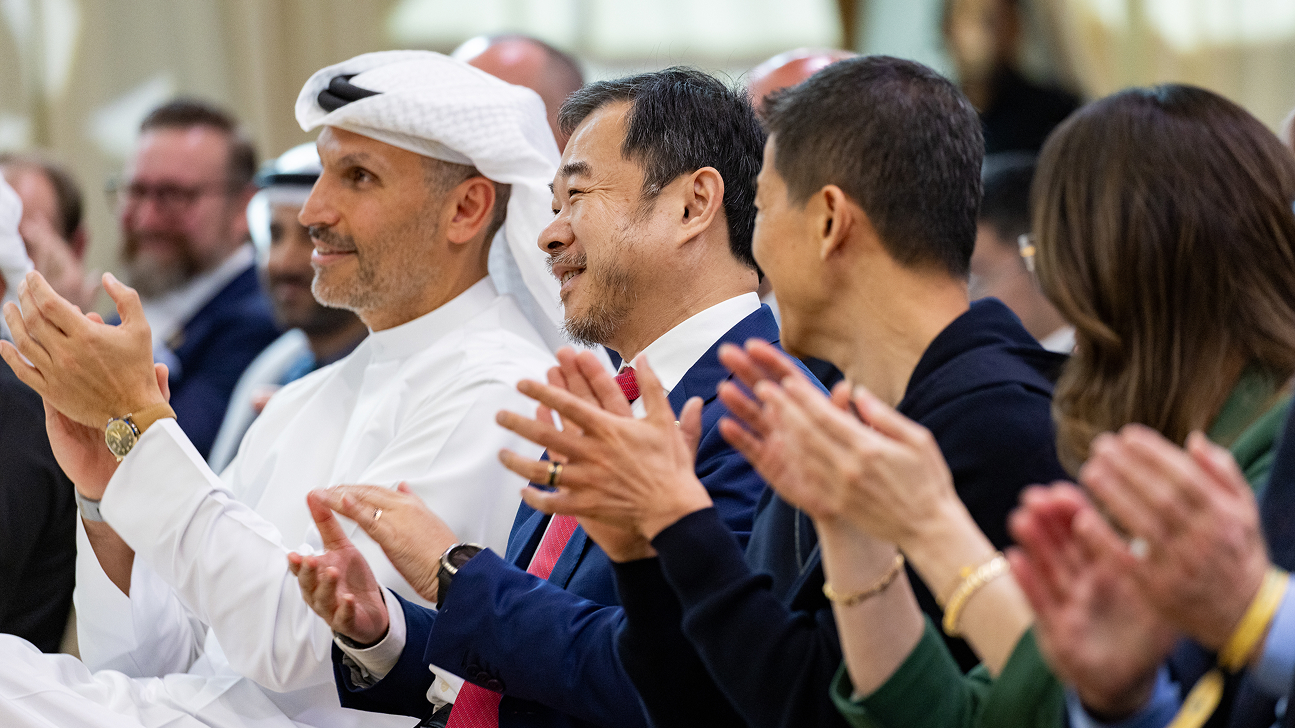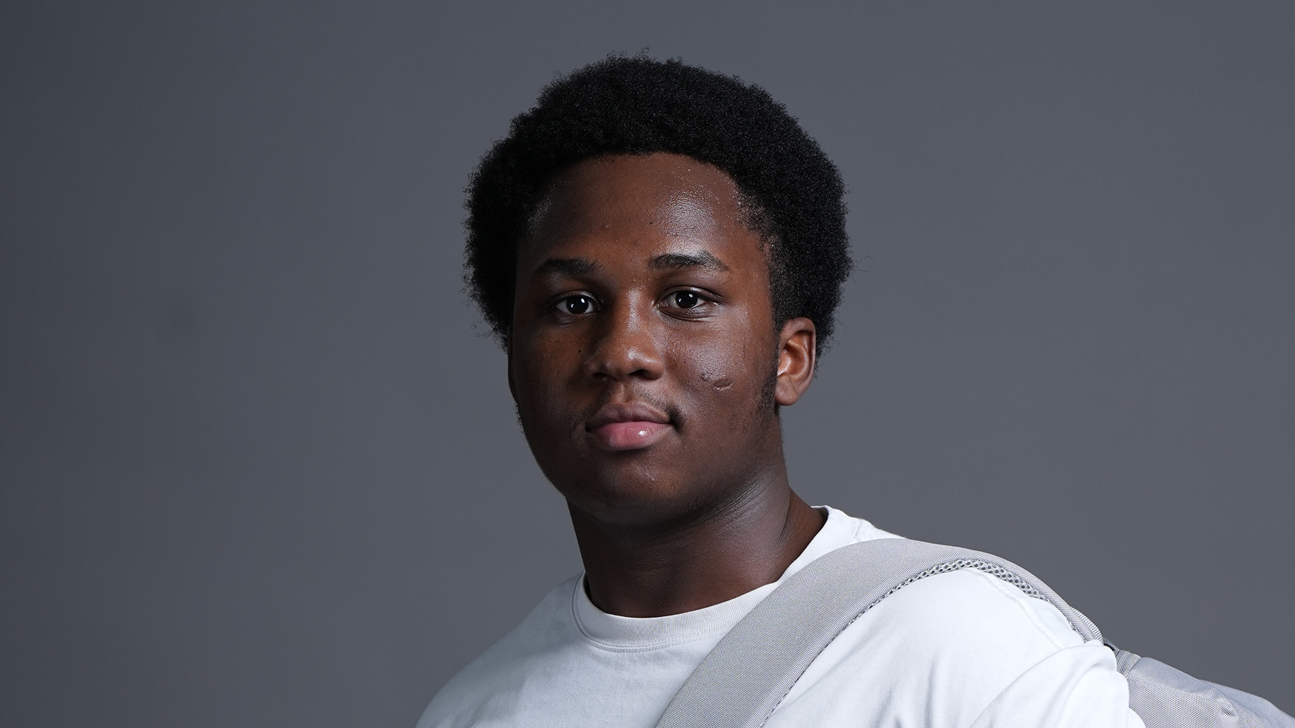10 in 10: Q&A with Emirati engineers, Fatima and Rzan
Celebrating International Women in Engineering Day
Friday, June 23, 2023
These two Emirati master’s students are from a long line of engineers; their difference, they are young, ambitious, and talented women signing up to – employ and deploy artificial intelligence (AI) – to expediate solutions to some of the world’s most pressing issues.
Fatima AlKhoori and Rzan Alhaddad are both studying a Master of Science in Machine Learning at Mohamed bin Zayed University of Artificial Intelligence (MBZUAI) to ensure they gain the competitive edge over their engineering colleagues in their respective fields of transportation engineering and mechanical engineering.
MBZUAI is celebrating the pair today for International Women in Engineering Day which celebrates the best, brightest, and bravest women in engineering; those women who are helping to build a brighter future.
[wps_image-right image=”https://staticcdn.mbzuai.ac.ae/mbzuaiwpprd01/2023/06/Fatima-AlKhoori-web.jpg” caption=” Fatima AlKhoori” first-paragraph=”AlKhoori is an experienced transportation engineer and says her pathway into engineering was aided by her upbringing and surroundings. “Our country stands out as a model for female empowerment in STEM areas (science, technology, engineering, and mathematics),” she said. AlKhoori is a member of the UAE’s Youth Sustainable Development Goal’s Council and has held young leadership roles for several international and local organizations.” second-paragraph=” Earlier this month, Alhaddad presided as the Master of Ceremonies (MC) at MBZUAI’s Class of 2023 Commencement in the presence of His Highness Sheikh Hamed bin Zayed Al Nahyan. She is yet to work in industry but possesses a driving passion for research and improving the environment. “The combination of AI and environmental sustainability offers exciting opportunities to address pressing challenges and make a positive impact on the environment,” Alhaddad said.”]
1) What type of engineering are you qualified in?
Fatima: Transportation; transportation engineering is a multidisciplinary field as it includes and applies multiple principles in engineering, mathematics, physics, and other services related to the movement of people and freight. It is considered as a key branch of civil engineering, and it includes the full cycle of transportation in terms of planning, designing, operating, and managing the transportation systems. Transportation Engineering is a very important major as it influences our daily life, affects the design of our cities, impacts our commuting time, and contributes to the global supply chains efficiency.
Rzan: Mechanical; mechanical engineering is a field that revolves around finding effective solutions by leveraging the principles of physics, particularly related to energy and motion. The engineering process involves a systematic approach that begins with a comprehensive understanding of the problem, followed by simplification and optimization of relevant factors. Next, concepts and designs are created using mechanical principles, simulation tools, and analytical methods. The solution is then tested and improved to ensure its safety and efficiency.
2) What was your bachelor’s degree and where did you undertake it?
Rzan: I undertook both my bachelor’s and master’s in mechanical engineering with the highest level of distinction at Khalifa University of Science and Technology in Abu Dhabi.
Fatima: Bachelor of Science in Transportation Engineering, Distinction with Honors, Higher Colleges of Technology in Abu Dhabi. I also hold a Master of Science in Sustainable Critical Infrastructure, Excellent Honors, Khalifa University of Science and Technology in Abu Dhabi.
3) Are there any other engineers in your family?
Fatima: Yes, two of my brothers are engineers and work across different disciplines to me. One is a civil engineer and the other is a chemical engineer.
Rzan: Engineering runs in my family, serving as a great source of inspiration. Both my father and uncles are engineers, and their expertise has influenced and motivated not just me, but also my sisters and many of my cousins to pursue careers in engineering.
4) Was it a difficult choice to choose engineering as a woman or you always wanted to do it?
Rzan: It is not a major that women are generally pushed to go for, but the incentives to study this major and government encouragement lead me to do it even though initially it was not something I considered to be doing for the rest of my life. With time, I found myself interested in mechanical engineering, namely topics like system controls, vibrations, material science, and thermodynamics.
Fatima: I became passionate about engineering because I want to solve problems, and I want to make a positive difference in the world. To me, engineering exemplifies the ideal synthesis of scientific ideas, inventiveness, and practical application. I am particularly fascinated by how transportation engineering and artificial intelligence (AI) can help bringing real change, whether it is through the design of sustainable transportation infrastructure, the creation of new technologies, or the efficiency-improving of current processes.
My country empowered me and encouraged me further to pursue my learning journey in the engineering field. Moreover, universities in the UAE are leading the way in promoting female enrolment in engineering programs and creating a welcoming environment where women may flourish in distinguished engineering opportunities.
5) Have you worked in industry?
Fatima: After graduation, I worked at Abu Dhabi Quality and Conformity Council in the Quality Infrastructure Division. Following that, I joined Khalifa University of Science and Technology as a researcher and a graduate student in the Sustainable Critical Infrastructure Program. While there, I worked on multiple transportation focused research projects under the transportation infrastructure, urban design, and comparative land use and transportation planning fields. My research paper was published in one of the top transportation journals in the world (Transportation Research Board – Part A). It was about the overloaded heavy commercial vehicles effect on the road infrastructure in the Abu Dhabi Emirate.
After Khalifa University, I joined Etihad Rail Company as a research and development expert and project manager. I led key projects to support the company’s long-term business goals and contribute to the success of the UAE’s national railway network through research and data driven outcomes.
Rzan: Although I have not yet ventured into the industry, my involvement in research during my final semester of my bachelor’s degree sparked a series of explorations in various areas of mechanical engineering. However, I aspire to gain hands-on experience in the industry to deepen my understanding of real-world problems and their practical solutions. By immersing myself in an industry setting, I aim to further enhance my skills and knowledge to make meaningful contributions in the field of mechanical engineering.
6) What made you apply for MBZUAI?
Rzan: As a researcher, I recognize the immense potential of integrating my engineering expertise with advanced tools and techniques, particularly in the realm of AI. By embracing these cutting-edge technologies, I can enhance my problem-solving capabilities and unlock new possibilities for generating impactful outcomes. The combination of my acquired engineering skills and the utilization of AI empowers me to approach research challenges with a fresh perspective, ultimately enabling me to make significant contributions in my field.
Fatima: Pursuing a secondary master’s degree in machine learning at MBZUAI with the combination of transportation engineering and sustainable critical infrastructure has shaped a unique academic path for me to conduct transportation focused research with the aid of AI and machine learning algorithms. It enables me to transform raw information into actionable insights using machine learning algorithms, and I have gained unique highly sought after skills in AI and data analysis.
Studying at MBZUAI has provided me with an unrivaled opportunity to interact with cutting-edge AI technology at the first graduate-level, research-based AI university in the world. In addition to the university’s research-intensive strategy – which enables a thorough exploration of machine learning approaches – I’ve also been given the chance to collaborate closely with faculty members of international acclaim on significant projects.
7) What are you currently researching?
[wps_image-right image=”https://staticcdn.mbzuai.ac.ae/mbzuaiwpprd01/2023/06/Rzan-web.jpg” caption=” Rzan Alhaddad” first-paragraph=”Rzan: My thesis is on automatic speech recognition of English and Arabic dysarthric speech. Dysarthria is a motor speech disorder that is characterized by difficulty in articulating speech sounds due to weakness or incoordination of the muscles. Speech disorders are caused by a range of medical conditions which affect millions of people all over the world, degrading their quality of life. A speech disorder often is paired with other physical impairments. Hence, the desire and motivation to create speech enabled assistant devices to facilitate their day-to-day life.” second-paragraph=” Fatima: My current research project is ‘Traffic Signs Detection in Autonomous Vehicles (Salient Signs Detection) Using Transformers Models Architectures’. By identifying and interpreting signs in real-time, this ensures that navigation is both safe and effective.”]
8) What industry do you see yourself having a career in?
Fatima: Research and development. I believe this is where my work can make the most impact in the world.
Rzan: Studying AI has introduced a vast range of opportunities for me as an AI engineer. Every industry can grow faster and better with AI. Currently, I am interested in research related to speech recognition, and computer vision related to satellite and space shuttles development. I will likely join the aerospace or defense industries.
9) Are you sustainably conscious?
Fatima: Yes, I am passionate about sustainability. I have been contributing and participating in various projects and programs locally and internationally to help fulfill the United Nations and the UAE’s 2030 Sustainable Development Goals (SDGs). Some of these include:
- I was selected by UNLEASH Organization as a Young Sustainable Development Goals Leader in Copenhagen, Denmark, among 10,000 applicants. I have worked with an international group under the SDG 11 (Sustainable Cities and Communities) on a project that addresses the data for predicting public transportation demand.
- I was selected by YouthNow organization, an official partner of the United Nations Habitat as an SDGs delegate at Jeju Island, South Korea. Our team worked on SDG 11 on a project about providing a sustainable housing project for a Vietnamese village.
- I am one of the co-authors of the Life-Escapes Beyond Bigness Book, published by the Shaikha Salama Bint Hamdan Foundation, which highlights human-scale urbanism. I have participated in the Place Attachment and the Everyday Urbanism Social and Physical Behavior of the people within the UAE neighborhoods to provide a more sustainable neighborhood unit.
Rzan: Being sustainably conscious as a mechanical and an AI engineer means to study the lifecycle of the solutions I provide, in which I ensure that this solution is environmentally-friendly during every stage of the product’s lifecycle – from creation to disposal.
10) Do you want to contribute to the next generation of low carbon solutions?
Rzan: I want to be part of the movement to improve our environment. One option is to focus on enhancing algorithms used for analyzing satellite imagery, as satellite data plays a crucial role in monitoring and understanding the Earth’s current conditions. By optimizing and refining these algorithms, you can contribute to more accurate and insightful analysis of satellite imagery, enabling better environmental assessments and decision-making.
Another promising area is optimizing energy consumption and reducing carbon emissions in transportation. AI techniques can be applied to improve the efficiency of various modes of transportation, such as cars and ships, by optimizing fuel consumption, route planning, and traffic management. By leveraging AI in this field, you can help minimize carbon emissions and contribute to creating more sustainable transportation systems.
Fatima: Yes, my current research contributes to multiple SDGs goals. For example, SDG 11 (Sustainable Cities and Communities) – autonomous vehicles with good traffic sign detection have the potential to reduce congestion and enhance traffic flow in urban areas, creating more sustainable urban environments. This research also supports the growth and application of autonomous vehicles, which are anticipated to play a vital role in transportation systems in the near future by improving their capacity to detect and react to traffic signs – SDG 9 (Industry, Innovation, and Infrastructure).
Related
Not just another deck: how MBZUAI’s okkslides is redefining executive communication
The MBZUAI startup is turning messy research and organizational context into decision-ready narratives with a human-in-the-loop AI.....
Read MoreMBZUAI marks five years of pioneering AI excellence with anniversary ceremony and weeklong celebrations
The celebrations were held under the theme “Pioneering Tomorrow: AI, Science and Humanity,” and featured events, lectures,.....
- celebration ,
- five year anniversary ,
- ceremony ,
- event ,
- board of trustees ,
- campus ,
- students ,
- faculty ,
Youngest MBZUAI student sets sights on AI superintelligence at just 17
Brandon Adebayo joined the University’s inaugural undergraduate cohort, driven by a passion for reasoning, research, and the.....
- engineering ,
- student ,
- Undergraduate ,


